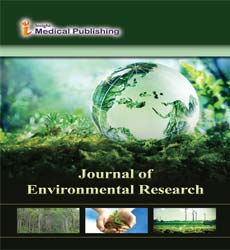Electrochemical energy storage technology: A path to renewable and sustainable future
Abstract
Statement of the Problem: Global development, industrialization, and our unsatiated desires for energy has contributed dramatically for the overexploitation of natural resources. Given the current global energy demand scenario, growing population (by 2050 it is expected to grow till 9.9 billion from 7.8 billion in 2020, requiring 80% more energy and 70% more food)1, depletion of fossil fuels, greenhouse gas (GHG) emissions, and achieving net-zero emission targets are the issues that must be considered for sustainable development2. To address these challenges investment in R&D and adoption/integration towards renewable energy is of utmost importance to achieve the sustainable development goal, which can be addressed by conducting high-quality research and developing an understanding of the diverse nextgeneration technologies that can help the scientific community to advance and to provide solutions to the socio-economic challenges. The scientific community is trying to work towards the development of non-conventional energy sources including new technologies for renewable and environmentally friendly electrochemical energy storage (EES) systems (Li-ion batteries (LIBs), Na-ion batteries (SIBs), and supercapacitors (SCs))3. EES technologies are one of the most promising electric energy storage applications because of their high efficiency and flexible design. There is a great demand for advanced energy storage systems with enhanced performance, especially in terms of their energy density, power density, cyclability, rate capability, operational safety for different applications.
Methodology: The role of advanced synthetic chemistry plays a crucial role in design and development of the next-generation novel material which can not only perform well but also will help in meeting the gigantic upcoming energy demands. Also, by exploring and understanding the mechanisms of energy generation and storage has to be explored and designing advanced electrochemical energy storage (EES) systems is required with its integration with the renewable sources (like solar/wind/hydro can provide a solution. This might be accomplished by doing research and development in the field of advanced energy storage devices such as batteries and super capacitors in a flexible, convenient, sustainable, and cost-effective manner. Findings: The electricity produced from most renewables is random and intermittent, which hinders the widespread application of renewables. Therefore, developing advanced energy storage technology is pivotal to improving electricity output reliability and stability from renewables. Now, the above-mentioned energy storage systems can be linked into grids (with renewable energy sources such as solar/wind/hydel, etc.) as part of a grid-based storage system. In addition, it can be used to facilitate efficient, sustainable, and reliable end-to-end users, which includes the growth of electricity demand for a variety of applications such as monitoring control and power systems, power quality management, smart home energy systems, and EV charging stations, among others.
Conclusion & Significance: One of the foremost challenges for sustainability is efficient use of renewable energy resources, a goal that hinges on the ability to store this energy when it is produced and disburse it when it is needed. The need for developing novel materials is the need of the hour and till now, the battery research could not achieve an energy density above 500 Wh/kg, so the research community aims to use and explore advanced materials which can offer and go beyond the abovementioned energy density targets. Moreover, the revolutionary technologies that dramatically increase safety and reliability remain urgently needed for the aforementioned EES systems. The demand for energy varies with the applications i.e., from personal devices (up to 10 kWh) to transportation (up to 10-100 kWh) to distributed storage (up to 100 kWh - 1 MWh) to central storage4. Research is striving towards achieve these targets and develop advanced technologies.
Open Access Journals
- Aquaculture & Veterinary Science
- Chemistry & Chemical Sciences
- Clinical Sciences
- Engineering
- General Science
- Genetics & Molecular Biology
- Health Care & Nursing
- Immunology & Microbiology
- Materials Science
- Mathematics & Physics
- Medical Sciences
- Neurology & Psychiatry
- Oncology & Cancer Science
- Pharmaceutical Sciences
